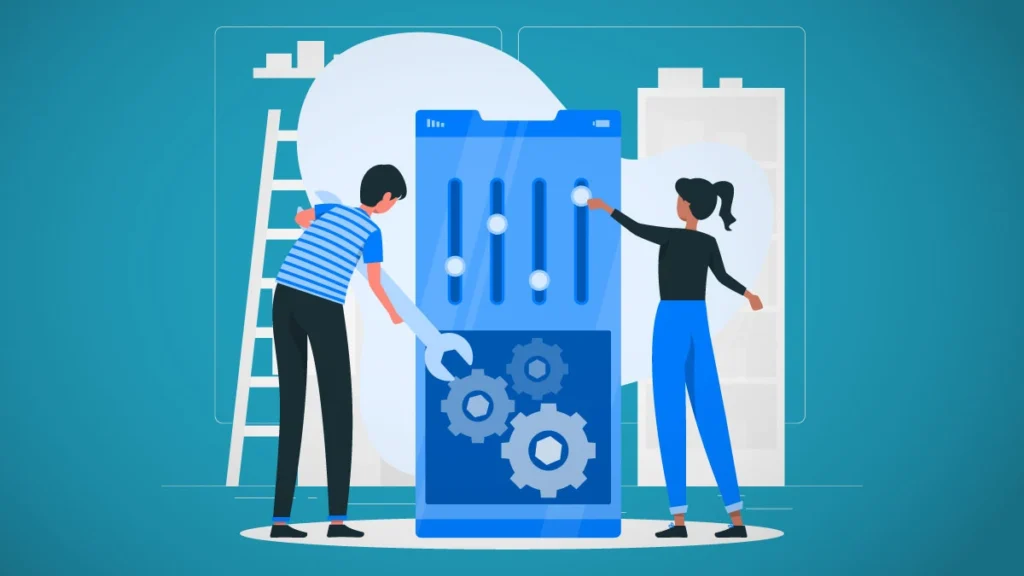Standardisation within Personalisation in Healthcare.

Standardisation within Personalisation in Healthcare.
- A young, dynamic, highly intelligent boy who likes to create and execute technology-based ideas passionately was thinking to start his own start up based on his ideas but suddenly he was forced to join a small-scale company as an employee with very important but typical role which was not his area of interest.
Such kind of incidences are very common in India. Does it affect psychological health of individual after certain further years? - A national badminton player who had earned several medals in her teen age had to quit her badminton due to academic and social pressure. Parents are not even considering restarting her badminton career after exams.
Are we, being parents of such brilliant kids are managing their psychological variations in apt ways? Are we giving enough time to kids for recalculating their dreams? - A 45-year gentleman struggling with hyperacidity, certain food intolerance, migraine, hypertension was got promoted as marketing head. He has to travel 20 days a month with wild geographic variation. What will be its body’s response? What about his gut health? Are we taking certain preventive care to compensate all ill effects due to altered lifestyle?
We humans are altogether different from each other and have unique physical and psychological traits. The responses of the body to particular stimulus are totally different than each other. So, in the Era of standardisation for betterment of life, Healthcare sectors contrary emerges with new idea of personalisation or with individual specific approach. And here comes need of Standardisation in personalisation which exactly balances health harmony with maximum health benefits.
Era of standardisation-
We are evolving very fast with the help of technology. Apart from basic needs we are constantly upgrading our new needs which makes life easier.

There are some rules and regulation for maintaining quality, safety and maximum output related to technology called as Standardization. Standardization can help maximize compatibility, interoperability, safety, repeatability and quality.
These Standardization processes are also implemented to healthcare systems to improve quality, safety and standards. But there are some hidden drawbacks of standardisation in certain sectors of healthcare systems.
Standardization in Healthcare-
There are many standardised Healthcare procedures, diagnostic procedure, treatment protocols and vaccination schedules derived and executed throughout the medical systems for maintaining quality and Safety of patients. These norms are increasing quality and standards of healthcare system. Standardization is also required for conducting research for maintaining protocols.

But apart from these, medical systems focusing on individual specific medicines, individual specific lifestyle designing are emerging and evolving very fast with the idea of giving accurate, pinpoint and apt results.
Although the concept of personalized medicine is new to modern medicine, it is a well-established concept in Ayurveda.
Ayurveda emphasizes the treatment of disease in highly individualized manner as it believes that every individual is unique having different constitution. Ayurveda classifies all individuals into different ‘Prakruti’ types based on the concept of tridosha and each type has varying degree of predisposition to different diseases. This is independent of racial, ethnic, or geographical considerations and may provide appropriate means of classifying phenotypes to be considered collectively for genotyping. Ayurveda promotes preventive care and treatment based on individual prakruti and Nadi at that stage.
Prakriti-based medicine can play a vital role in this changing scenario of global health wisdom as Ayurveda offers its modalities by way of ahara (diet), vihara (lifestyle) and aushadhi (medication).
Standardisation in personalisation by Ayurvedic approach-
- Daily requirement of protein is 0.8 gm of protein per kg body weight. What if your gut health is in impaired state? What if you are just discharged from hospital after long treatment?
- If you are under treatment for certain disease and facing hyperacidity, then what kind of dietary changes you need?
There are certain standardise rules and regulation related to health care for maintaining good Quality of Life. We are learning these basic good habits which leads to healthy life Including regular check ups, dietary intake, water intake etc.
Apart from above, Ayurveda uniquely describes very individual specific approach for maintaining health harmony.
Diet and lifestyle based on individual prakruti, lifestyle modifications according to season and geographic area are unique and simple ways which emphasizes importance of standardisation in personalisation.

Nadi Tarangini – A unique diagnostic tool focusing on standardisation in personalisation.
With the concept of individual specific approach for maintaining health harmony, Nadi Tarangini perfectly emerges as tech-based solution for maintaining quality of life. The Ayurveda wisdom blended with technology in Nadi Tarangini enables assessment of Nadi which reflects underlying pathophysiology or dosha vitiation.

Assessment of prakruti, Nadi pariksha, gut health quotient, emotional quotient are unique insights provided by Nadi Tarangini with its patented sensor-based technology.
In the Era of lot of floating information regarding health with standardised rules, Nadi Tarangini will help everyone with its unique personalized approach by guiding them what exactly good and bad for particular individual.
Nadi Tarangini will help in following ways –
- By understanding prakruti of individual and guiding them for lifestyle modifications based on that prakruti.
- By understanding patient needs and risk factors associated with their traits.
- By providing individual specific preventive health care by monitoring gut health / emotional health quotient and Nadi pariksha.
- By providing insights related to diet including nutritional requirement, water intake etc. to improve health parameters.
- By reducing the trial-and-error approach of health care system.
- By providing follow up for comparing previous health status.
Nadi Tarangini will go hand in hand with new emerging branch of Ayurveda called Ayurgenomics.
Ayurgenomics presents a personalized approach in the predictive, preventive, and curative aspects of stratified medicine with molecular variability for assessing susceptibility and establishing diagnosis and prognosis mainly based on the constitution or prakruti.
When we see closely that standardization and personalization are not opposites but rather parallel, complementary goals that can improve efficiency, patient experience and quality of care.
One of the more challenging developments in the healthcare industry today is the simultaneous push toward standardisation and personalization. The concept standardisation in personalisation is very important to promote health goals and harmony. These trends are well explained by Ayurveda and can be considered as main strength of Ayurveda. By using technology based on Ayurveda with Nadi Tarangini, we can make some standard norms for personalized approach.
Tech based non invasive assessment of health parameters and guidelines for maintaining good Quality of Life is the key for standardisation.
The future of healthcare delivery is a confluence of individual specific practices, patient preferences and precision medicine, all enabled by data analytics and technology. Needs and preferences through personalization is very important for achieving health goals which are different for all.
Personalization and standardization seem to exist on opposite poles, each with its strengths and weaknesses, each signifying different values. But they are not intrinsically opposing imperatives in healthcare. There is great value in both, and, when applied thoughtfully and strategically, they can co-exist as powerful complementary forces.
Nadi Tarangini will emerge as powerful solution for connecting and setting norms in the concept of standardisation in personalisation.


